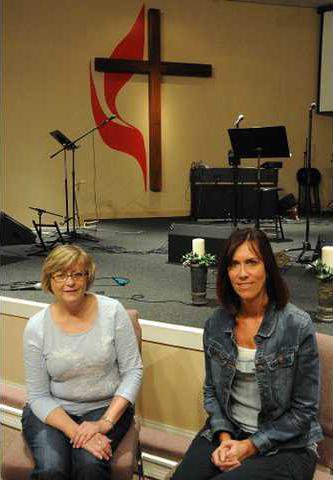As a nurse, Wanda Dill knows how worrisome life’s changes can be for people, and she’s seen firsthand the power of a listening ear. Although she does her best to be there for her patients, she felt compelled to take her compassion to another level. That next step was becoming a trained Stephen Leader and Minister. "I’m already ingrained in looking at people and seeing what they need, but there are so many people out there hurting — whether it’s a divorce, loss of a child or loss of a job. They need someone to talk to," said Dill, who is a member of The Springs Church in Flowery Branch. "They need somebody who will listen and not judge. And that’s what a Stephen Minister does, sits there and talks to them and lets them know that Jesus loves them." Stephen Ministry began in 1975 when the Rev. Kenneth Haugk, who was also a clinical psychologist, trained members of his congregation to provide Christian care to community members in need. According to ministry officials, the program was named after "Saint Stephen, who was the first layperson commissioned by the Apostles to provide caring ministry to those in need." After doing a little research, Dill decided to take her idea to Sandy Skinner, who is an adult pastor at The Springs. "Wanda and I were in a conversation and she was like ‘I’m really interested in Stephen Ministry, have you ever heard of it? I think it would be good for our church,’" Skinner said. "And I said, ‘As a matter of fact, I’ve been thinking about it, too. And our pastor’s wife at the same time was thinking about it too. "It was like, ‘OK. God is confirming this through more than one person, this is something we need to do." The women attended a weeklong Stephen Leaders training session in Florida, which provided them with the skills to return to Flowery Branch and train other Stephen Ministers. "When we were there, we met some people from Prince of Peace Catholic Church, which is next door," Dill said. "So we were able to work with them and get to know them and make it more of a community outreach instead of just The Springs. Many churches have Stephen Ministries, we’re still exploring who does." Both women also completed 20-weeks worth of training to obtain their Stephen Minister certification, which allows them to extend care to members in the community. More than 60,000 individuals have been trained as Stephen Leaders worldwide. Those leaders have gone on to train more than 500,000 Stephen Ministers. "What surprised me is the level of respect that pastors have for Stephen Ministers because in essence, it’s almost a partnership. There’s only one pastor and a huge flock for him to shepherd over, and he can’t do it all himself. Having trained lay people who are able to help individuals through crises is also good for those people who may not be comfortable speaking to their pastor about their problems. "Some people want to be viewed as having it all together in their pastor’s eyes, so they don’t want to go to them, but they still need someone to walk through the nitty-gritty with them," Skinner said. "None of us have it all together. In Stephen Ministry, you hear the phrase ‘wounded healer’ a lot. Meaning we have been wounded, and so we are better able to help others find healing." "We don’t heal them," Dill said. "Christ does." "We’re the care giver," Skinner said. "But God is the cure giver." Being a Stephen Minister not only requires compassion and the ability to hold things in confidence, candidates must also have the time to meet with the recipient of their care weekly. "They really don’t recommend that (a Stephen Minister) have (more than) one care-receiver at a time," Dill said. Although they are there to listen to problems and concerns, Stephen Ministers and Leaders aren’t counselors. "We aren’t trained to take the place of a professional therapist," Skinner said. "It’s more of just someone to walk through the fire with." "It’s about just being their sounding board. Letting them get it out and vent and heal themselves through that process," Dill added. "Slowly you can incorporate Christ healing into it, but you don’t even go into it with, ‘You gotta believe in Jesus.’ It’s not the point. "The point is being there for them and letting them see Jesus in you."
What it means to be a Stephen Minister

